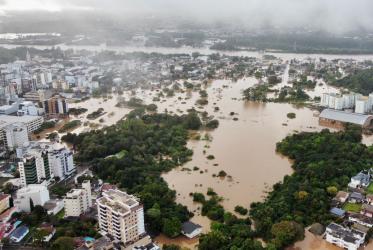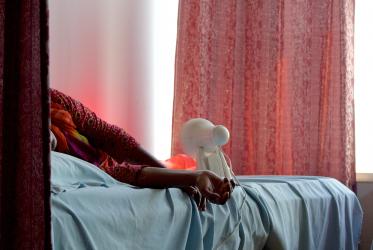Displaying 1 - 20 of 56
11 April 2024
WCC expresses deep concern for human rights in Haiti
28 March 2024
In wake of floods in Brazil, WCC expresses concern and solidarity
09 September 2023
WCC mourns the death of Julio de Santa Ana
20 April 2023
WCC stands in solidarity with victims of major flood in Brazil
17 February 2022
WCC podcast deals with death and dying
15 December 2020
New student body at Bossey Ecumenical Institute “a source of joy”
14 September 2020
Larissa Aguiar Garcia: "We're opening a safe space”
26 September 2019
New academic year underway at Ecumenical Institute, Bossey
18 September 2019
















